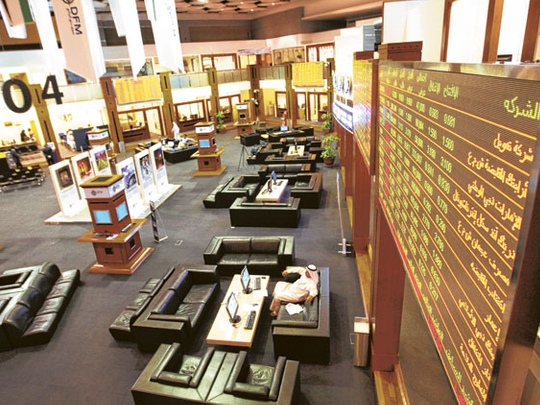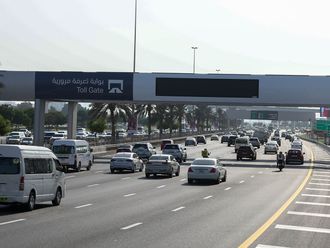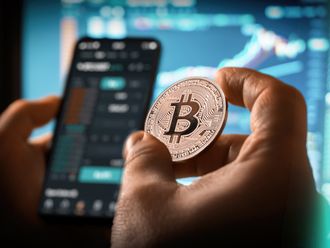
Dubai: Dubai's benchmark stock exchange slumped to a more than seven-year low Sunday amid renewed calls for the UAE's equity markets to merge into a single entity.
The Dubai Financial Market (DFM) General Index tumbled 0.99 per cent to 1,314.47 — its lowest close since June 2004 — after nine EU countries had their credit ratings downgraded and speculation mounted that local companies will report disappointing full-year earnings.
The Abu Dhabi Securities Exchange (ADX) fell to a more than three-week low, slipping 0.69 per cent to 2,344.18.
Talk of a potential merger of the UAE's exchanges has rumbled on for years, but there is a growing feeling among analysts that action needs to be taken now in an attempt to revive the country's lethargic capital markets scene.
Compelling case
The DFM lost 17 per cent in 2011 as volumes dwindled while numerous local brokerages were forced to suspend or close their operations.
"The case for greater integration is compelling," said Simon Williams, HSBC's chief economist for the Middle East. "Capital markets in the region are at an early stage of development. But the quicker we build, the more rapidly we see the benefits."
Williams says there are great corporate success stories in the UAE, but investors often miss out, as the majority of local firms are not publicly listed.
"We need to encourage the private sector and, particularly, blue chip companies to open up some of their capital. That means more initial public offerings and more privatisation," he said.
Last November, the Securities and Commodities Authority (SCA), the market regulator, published drafts covering several new market regulations, including short-selling through authorised brokers, security lending and borrowing.
However, a single trading platform is the development most investors — particularly institutional investors — would like to see as it would likely give a boost to flagging liquidity levels.
Profit-taking
Nasdaq Dubai and the DFM consolidated some operations in July last year, but a tie-up between those exchanges and the Abu Dhabi Securities Exchange has thus far proved elusive.
The gloomy macro-economic picture has also affected sentiment in recent years as the global economy lurches from one financial crisis to another and political tensions continue to envelop the Arab world.
Risk-averse investors indulged in some profit-taking yesterday after ratings agency Standard & Poor's downgraded nine debt-laden EU countries.
"Like all other emerging markets, there has been some spillover from the political instability in the region, mainly due to heightened risk aversion among institutional foreign investors," said Dr Fabio Scacciavillani, chief economist at Oman Investment Fund.












